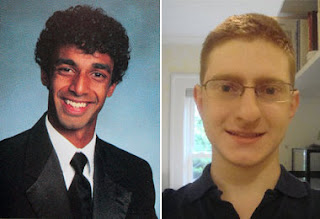People who know me well know that conversations with me frequently turn to LGBT (lesbian, gay, bisexual, and transgender) rights issues. Last week, I was having one of my ubiquitous passionate outbursts about the way ignorance and hate leads to violence for LGBT people, when the person I was talking to shrugged it off.
“I really don’t think it’s a big deal anymore,” they said. “I don’t care if people are gay, and I’ve never seen any discrimination.”
While we have come a long way in recent years, discrimination, harassment and even violence against LGBT individuals is still a problem in this country.Studies suggest that the challenges LGBT people face because of their sexual orientation can prevent them from reaching their full social and academic potential in college.
A study from 2010 surveyed about 100 institutions and 5,000 college students. The study finds that about 25% of lesbian, gay and bisexual students and faculty experienced harassment while at college. 43 percent of gay, lesbian and bisexual people hid their sexual orientation to avoid intimidation. 39 percent of transgender and gender nonconforming people experienced harassment, and 63 percent said hid their sexual orientation.
These statistics become more personal when considering the story of Tyler Clementi (pictured on right), a 19-year-old college student from Rutgers University. His roommate, Dharun Ravi (left), filmed Clementi in a romantic encounter with another man, then posted it on the Internet. Clementi jumped off the George Washington Bridge on Sept. 22, 2010, just days after the video was posted online. Ravi is now facing a 15-count indictment, including a hate crime, and could face 5 to 10 years in prison.
Perhaps bullying of this intensity and scope isn’t widespread at CMU. But that shouldn’t stop students, faculty and administration from working to make CMU a LGBT safe zone, which could prevent future tragic stories of harassment, suicide or bullying occurrences at CMU. More importantly, LGBT students could feel accepted, which would allow them more successful and happier lives. A safe zone doesn’t only mean a lack of violence, but also active acceptance.
CMU has made strides in the recent months and years. As an attendee of many of the Pride Week activities, I loved being in an atmosphere of acceptance for all kinds of people (read more about my experiences during Pride Week here). Also, there has been movement on the issue of gender-neutral housing on campus.
But what can college students do to help on an every day basis? Many don’t have time to join a student organization or lobby student government or administration for changes, much less take action on what’s going on in the United States in terms of LGBT rights However, there are many simple things any college student, or any person, can do. Here’s a guide on how to help make a college campus a safe zone for LGBT people.
There are some very simple things you can do:
(adapted from a recent blogpost of mine about how violence can lead to hate)
(adapted from a recent blogpost of mine about how violence can lead to hate)
- If your roommate or a classmate calls something ”gay” as an insult, tell them they’re being insensitive.
- If a student says they don’t care if LGBT people do their “thing,” as long as they don’t do it in front of him/her, say something like, ”Man, those straight people too. I really wish they wouldn’t do their thing in front of me.”
- If a friend says, “Hey, is that girl a lesbian?” Exclaim something like, ”I think that guy over there might be straight!” People make being LGBT abnormal, and they act like deviating from the heterosexual norm is something that should define a person’s entire identity. Really, it’s just one small part of a person, not their whole being.
- If you hear LGBT-bashing, be an ally and a friend. There’s not much you can do to change a hateful person’s mind, but you can be aware of those around this person. Don’t be afraid to say you disagree with the speaker. You never know who is listening and hurting as a result of this ignorance.
- If you are straight, recognize your heterosexual privilege. If you saw Tim Wise speak at CMU earlier this year, you know what I’m talking about.
- If you are a lesbian, gay, bisexual, or transgender individual, reach out to people who might need your guidance.
- If you need guidance yourself, there are roommates, friends, and allies all around you. Make sure you get what you need.
- Participate in activities like the Day of Silence (or other activities like CMU’s “Queer Monologues,” or the Drag Show) to help raise awareness about this issue.
- Be aware of LGBT groups in on campus (such as Spectrum). If you have time, attend meetings or events.
Most importantly, make yourself available to those who need it. You never know who might be listening. Advertise that you’re an ally in subtle ways (like those above), and you will be a safe place for LGBT people. Together we can make the entire campus a safer place.
So speak up, speak out, don’t stand for intolerance and actively fight for the acceptance of all people.



No comments:
Post a Comment